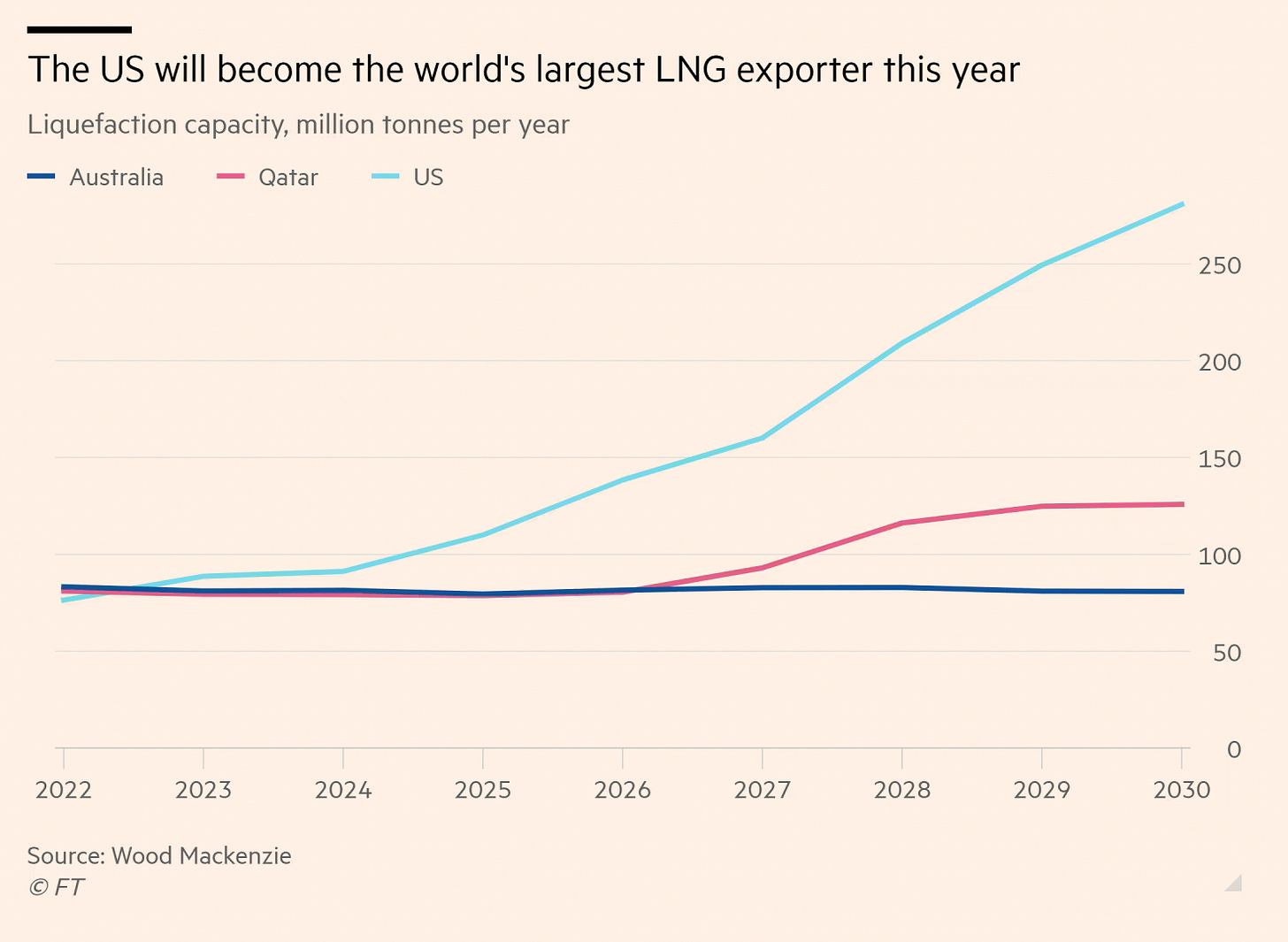Listening
Selection 170323
Below a selection of some news pieces, articles and podcasts that have caught my attention. I might try doing notes like these more regularly if there is interest.
The full name is ‘Very Intense Tropical Cyclone Freddy’. From FT:
Freddy accumulated the most energy of any cyclone recorded in the southern hemisphere during its lengthy gestation, according to the UN’s World Meteorological Organisation. The agency is assessing whether it has also broken the record for the world’s longest-lasting tropical storm. It is one of very few cyclones in recorded history to have crossed the full width of the Indian Ocean.
What is remarkable is that the cyclone circled around and hit Madagascar and Moazambique twice. It came back for a second shot. And add in that Malawi is experiencing its worst cholera outbreak on record. Polycrisis, history, Freddy certainly captures something of the present conditions.
Another chart from the FT:
A very interesting chart, indeed.
Meanwhile, Jeremy Scahill reviews competing accounts about responsibility for the bombing of the Nord Stream pipeline.
On related themes, Helen Thompson on reflecting on oil and the Iraq war:
In a near-perfect absurdity, considering the Iraq War’s purposes, most of the Western oil companies have, in recent years, either left or reduced their operations, while the Iranian Oil Ministry has set up an office in downtown Baghdad and Chinese firms are ascendant.
The twenty year anniversary of the Iraq war is definitely worth remembering and reflecting on, all the more so given neo-con zombies seem to never die. Peter Ricketts:
The unravelling of the international order, graphically demonstrated by Vladimir Putin’s full-scale attack on Ukraine, began with the West’s invasion of Iraq 20 years ago. By disregarding the principles of the UN Charter in 2003, the US and the UK ceded their moral authority to promote the rule of law, and emboldened authoritarians to act illegally when it suited them. The calamitous occupation of Iraq also turned Western public opinion against the whole idea of leadership in international crisis management and left an indelible mark on opinion in non-aligned countries. The consequences are still playing out to this day.
UK Integrated Review on ‘responding to a more contested and volatile world’:
There is a growing prospect that the international security environment will further deteriorate in the coming years, with state threats increasing and diversifying in Europe and beyond. The risk of escalation is greater than at any time in decades, and an increasing number of advanced weapons systems have been developed and are being tested or adopted. The strategic stability mechanisms that helped in the 21st century to mitigate the risks of misunderstanding, miscalculation and unintended escalation have not developed at the pace needed to ensure that competition does not spill over into uncontrolled conflict.
Christopher de Bellaigue on Turkey and Erdogan:
“In 2008,” an Economist report on the country said recently, “Turkey aligned itself with 88% of the EU’s foreign-policy decisions and declarations. By 2016 that share had fallen by half to 44%. Last year it was only 7%.” Countries can be lost. Europe’s leaders share the blame in this case: having promised Turkey a future in the EU, they took that future away. The Turkish precedent should be in the minds of today’s EU and NATO leaders as they make promises to another aspirant, Ukraine. As for the Turks, instead of having a retired prime minister whom history would have judged to be one of the ablest and most effective politicians of his generation, they are saddled with a forever president whose only trick is to present himself as the solution to crises of his own making.
Dan Wang’s recently published yearly review of China is valuable reading, although the Yunnan-related top and tails don’t really work and can be skipped.
For podcasts:
ChinaTalk with guest Nick Mulder about the history of sanctions: part one, part two.
Politics Theory Other with guest Adam Tooze about distinguishing fascism.
The Gray Area with guest Noah Hawley, the creator of Fargo.




